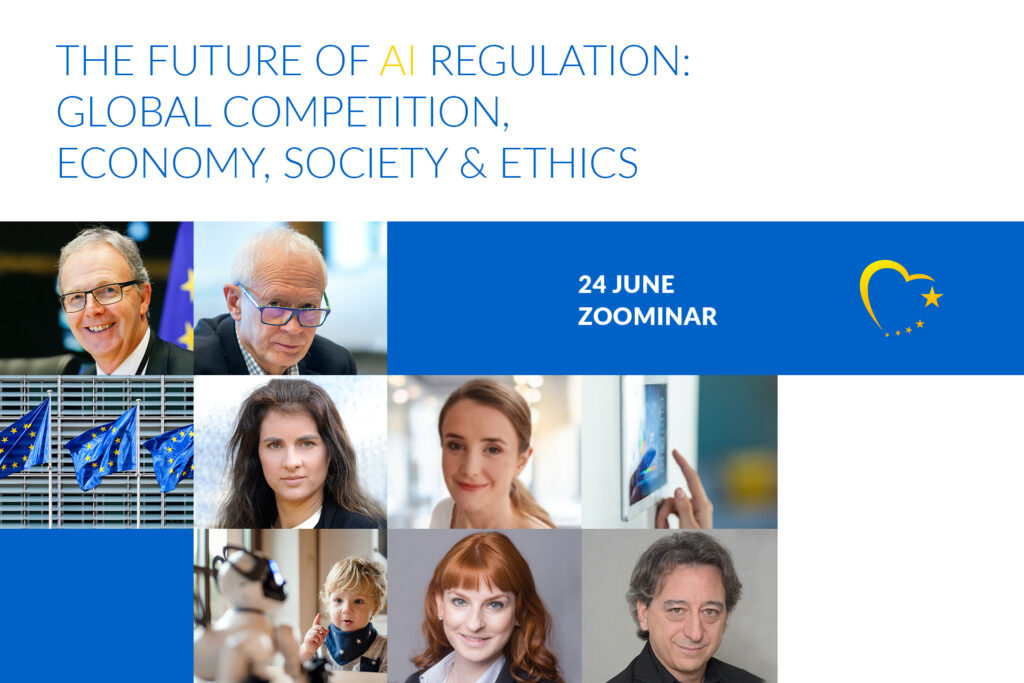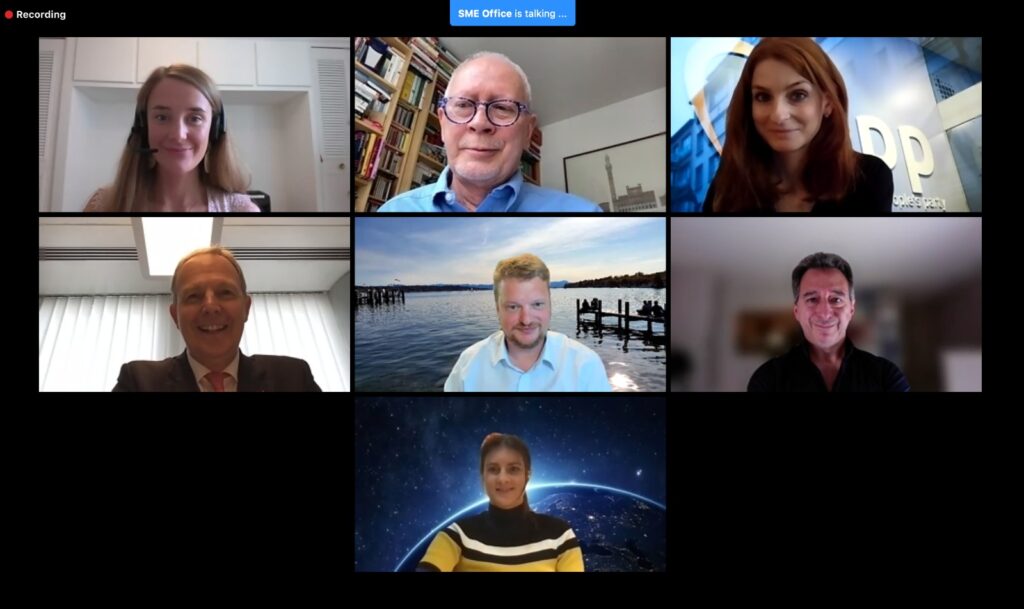Artificial Intelligence & Governance: Global Competition, Economy, Society & Ethics

On Thursday, June 24th, SME Europe of the EPP organized the webinar on Artificial Intelligence & Governance: Global Competition, Economy, Society & Ethics. A new chapter in the debate on AI development has started in light of the discussions on the Data Strategy, the new model for the Digital Single Market, the need for an industrial policy 4.0 and the passing of the Digital Services Act. The economic dimension and aspirations of the European digital advantage must be linked with societal, cultural, political and even psychological views of the future. All of the above-mentioned are necessary and key to the future of European competitive advantage. Artificial Intelligence is changing our world. We cannot afford not to utilize, nor do we have time to lose with regard to its development.

Moderated by Dr. Horst Heitz, Executive Director SME Europe of the EPP, the virtual meeting saw high-level speakers such as Axel Voss MEP, JURI, LIBE & AIDA Committees, Rapporteur on a Civil Liability Regime for Artificial Intelligence, Senator of SME Europe of the EPP; Dr. Michal Boni, The First Minister of DIgital Affairs in CEE 2011-13, Member of the European Parliament 2014-19, Senator of SME Europe of the EPP, Senior Research Associate with Martens Centre; Eline Chivot, Senior Adviser on Digital Policy, EPP; Dr. Olivia J. Erdélyi, School of Law, University of Canterbury, Member of the OECD’s Network of Experts on AI (ONE AI); Member of the Future of Work, Working Group of the Global Partnership on AI; Prof. Andrea Renda, Senior Research Fellow & Head of Global Governance,
Regulation, Innovation & Digital Economy, CEPS; Sophie Maisier Compagnon, Issue Leader on AI, European Tech Alliance, Senior Public Affairs Manager, Criteo.
Axel Voss MEP states that in order for Europe to gain a good start with AI development it’s necessary to not avoid AI systems in the future, even if they are “high-risk”. We need to find a balanced approach to this task and we need to focus on these high-risk systems in the regulation.
Dr. Michal Boni agrees that AI has a kind of strategic relevance. He believes that trust in AI is a key factor and names a few trust builders:
- Human-based approach (basing AI systems on principles related to the fundamental rights and ethical approach)
- Non-discriminatory models of algorithmic sequences
- Avoidance of hidden biases and more transparent patterns for automated decision-making
- Solving the problem of the deficit of transparent information how AI works, or in other words the explainability of AI (this requires instruments allowing to avoid asymmetry of information between users: business type and individual type and AI providers)
- Guarantees of the accessibility and quality of data necessary for AI feeding processes
Eline Chivot mentions some other areas for improvement as for example the lack of clarity and legal certainty around the definitions of things like subliminal techniques. We also have to anticipate the indirect and cumulative effects of all regulations to avoid just adding more burdens and costs for the development of AI in the EU especially for SMEs. Also, if we want to give more trust to the joint EU approach, we need to make sure more member states are represented.
Dr. Olivia J. Erdélyi touches upon the issue of trust and says that it’s the much more important for AI than for any other domain because:
- The stakes are extremely high (people’s most fundamental rights and freedoms could be jeopardized on a systemic scale, which worries many stakeholders and people)
- Uncertainty (because of the many social impacts that stem from AI are not really understood)
This implies that customers tend to come to companies that comply with the highest regulatory standards, which leads to strict regulation boosting competitiveness.
Sophie Maisier Compagnon from the European Tech Alliance believes that there are four areas that should be prioritized in the weeks ahead during the council empowerment discussions over the AI Act:
- Clarifying key definitions of the draft AI Act
- Ensuring a level playing field between EU and 3rd country developers
- Avoiding a fragmented interpretation of AI rules across Europe
- Codes of Conduct for regulating low-risk AI applications should be encouraged
Prof. Andrea Renda believes that when it’s adequately stringent, well-timed and well-designed, regulation is a blessing for innovation, moreover, it gives a certain direction to innovation that is needed. He has started discussing with the Commission that the human and planet centricities of AI that we want to encourage through innovation is at the core of any regulatory intervention in this field.

